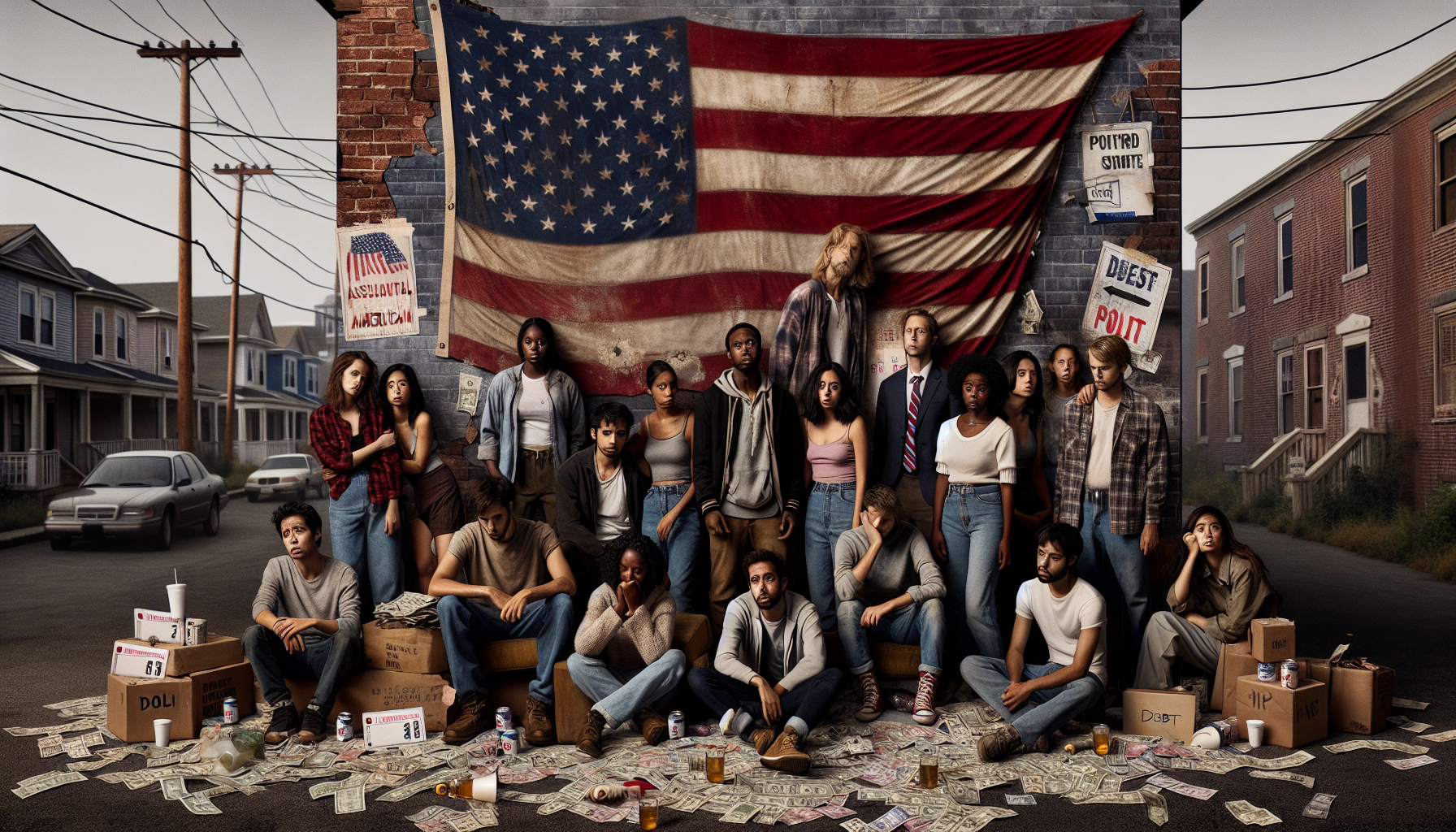More than 1,100 young readers told NPR they’re struggling with rising costs and debt—and losing faith that politics will help.
Many Gen Z and millennial voters describe a day‑to‑day squeeze from higher prices and debt, and say those pressures have dimmed their trust in elected leaders. NPR asked readers whether young Americans can get ahead of their parents; the callout drew more than 1,100 submissions from across the political spectrum and from almost every state. NPR notes the accounts are not representative, but together they sketch a picture of widespread economic worry and political alienation. (wusf.org)
Trust in institutions is low
Survey data mirror the angst in those accounts. In the Harvard Youth Poll released in April 2025, just 19% of 18‑ to 29‑year‑olds said they trust the federal government to do the right thing most or all of the time. (policycommons.net)
A separate analysis by the nonpartisan youth‑civics group CIRCLE finds only 16% of young people believe American democracy is working well for their generation, even as many still value democratic principles. (circle.tufts.edu)
Economic markers that feel out of reach
Readers most often cited housing. Over the past two decades, rent growth has outpaced renter incomes nationally; and in recent years, higher home prices and borrowing costs have outstripped wage gains in much of the country—making first‑time ownership harder. (jchs.harvard.edu)
The typical first‑time homebuyer was 38 years old in 2024—an all‑time high—up from about 28 in the early 1990s, according to the National Association of Realtors’ annual survey and historical data. (cnbc.com)
Demographic trends add to the sense of delay. The CDC reports the U.S. general fertility rate fell to a new low in 2024 (after hitting a record low in 2023), underscoring how many people are postponing or forgoing having children. (blogs.cdc.gov)
Debt is another through‑line. Federal Reserve data show student‑loan balances totaled about $1.6 trillion in late 2024; Pew estimates about one in four adults under 40 carry student debt. Younger homeowners also tend to hold larger mortgage balances than older owners, reflecting the costs of buying in today’s market. (newyorkfed.org)
‘Two wings on the same bird’
Some respondents say the choices offered by the major parties don’t speak to their economic realities. “Over time, I’ve come to see our two‑party system as two wings on the same bird,” said Sophie Howard, 27, of Davenport, Iowa. (wusf.org)
When asked which politicians seem to address affordability, many liberal‑leaning readers pointed to progressives such as Sen. Bernie Sanders and Rep. Alexandria Ocasio‑Cortez—and, in New York City, to Zohran Mamdani, who won the Democratic nomination for mayor in 2025. Conservative respondents often cited President Donald Trump and Vice President JD Vance. (wusf.org)
A growing electoral footprint
By 2028, Millennials and Gen Z together are projected to make up about half of eligible U.S. voters—a shift that could reshape both parties’ incentives, depending on whether campaigns address young voters’ economic concerns. (abc17news.com)

